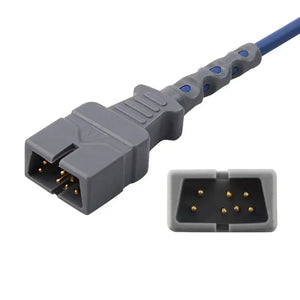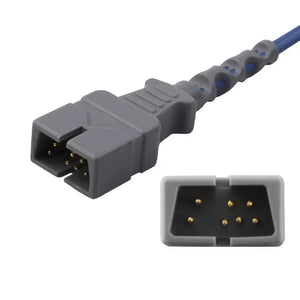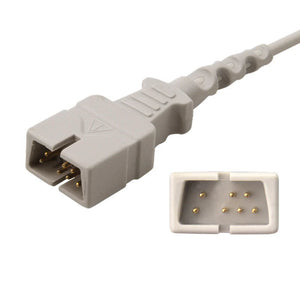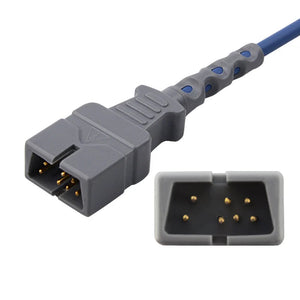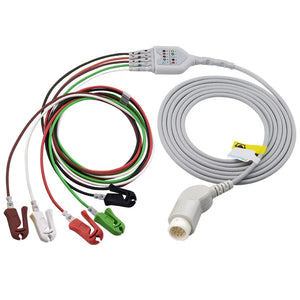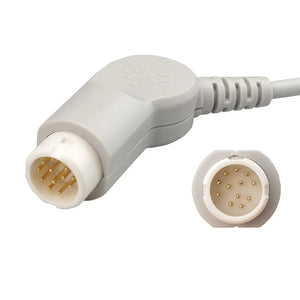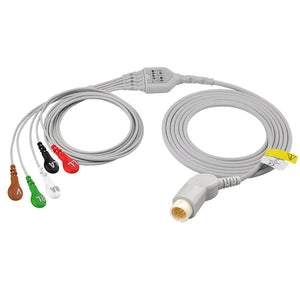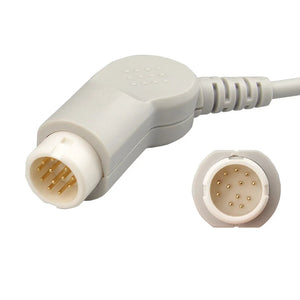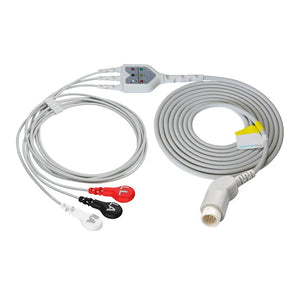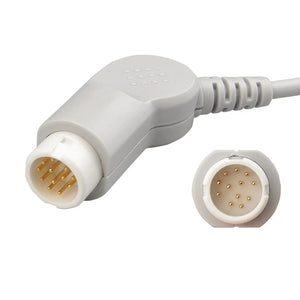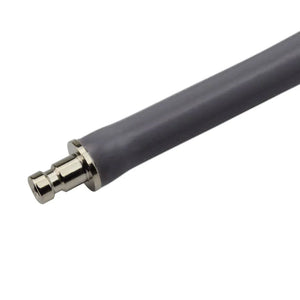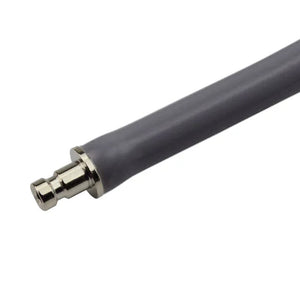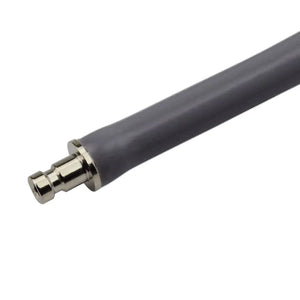Complete Guide to SpO2 Sensors: Things You Need to Know in 2024
Quick Reference Guide: SpO2 Sensors at a Glance
- Normal SpO2 Range: 95-100%
- Medical Emergency: Below 90% or less
- Measurement Method: Non-invasive pulse oximetry
- Common Uses: Medical monitoring, home health tracking, sleep studies
Understanding SpO2 Sensors
SpO2 sensors, also known as pulse oximeters, are vital medical devices that measure blood SpO2 levels. These non-invasive devices have become increasingly important in both clinical settings and home health monitoring. At MEDLINKET, we provide high-quality SpO2 sensors that meet rigorous medical standards.
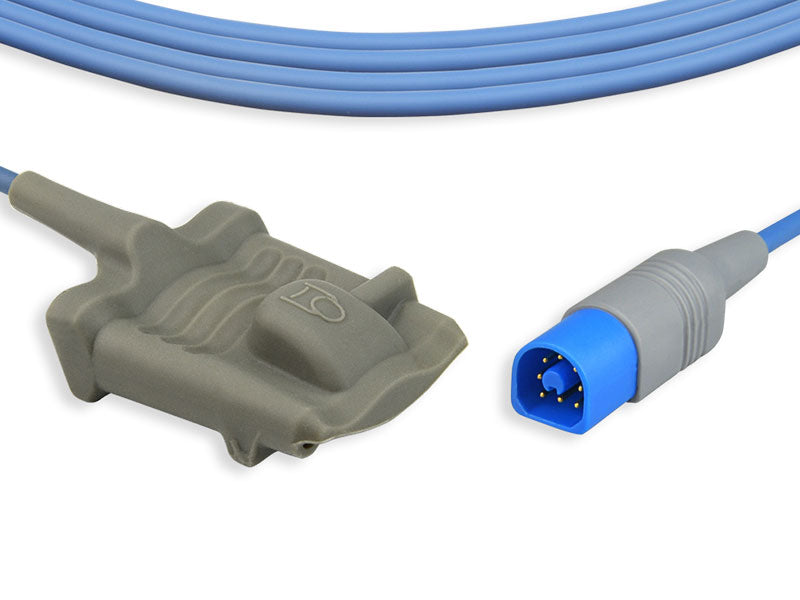
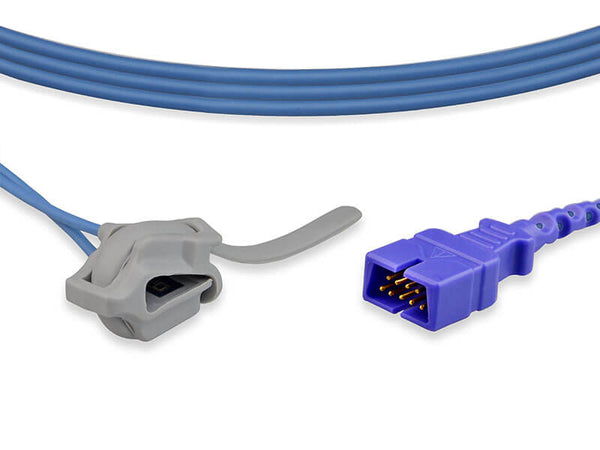

How SpO2 Sensors Work
SpO2 sensors use a fascinating technology called spectrophotometry. According to WHO guidelines, these devices emit two types of light:
- Red light (660 nanometers)
- Infrared light (940 nanometers)

Place the sensor in an appropriate position (such as on a finger), using the finger as a transparent container for hemoglobin. Red light with a wavelength of 660 nm and near-infrared light with a wavelength of 900-940 nm are used as the incident light sources to measure the intensity of light transmitted through the tissue bed.
This measurement is then used to calculate hemoglobin concentration and blood SpO2. Through SpO2 monitoring, parameters such as SpO2 and pulse rate can be obtained.

Accuracy and Reliability
According to research published in the New England Journal of Medicine, SpO2 sensor accuracy can be affected by several factors:
1. Interference Factors:
- Intravenous injection
- Interference from electrosurgical units or MRI
- Nail polish
- Strong indoor lighting
- Vigorous movement at the monitoring site
- Improper sensor placement
- Prolonged monitoring at the same site
- Skin tone differences
- Simultaneous blood pressure measurement
2. Pathological Factors:
- Hypoxemia
- Low skin temperature
- Abnormal hemoglobin levels
- Low perfusion
- Severe anemia
- Venous congestion
- Carboxyhemoglobinemia
- Methemoglobinemia
- Sulfhemoglobinemia
Proper Usage Guide
To ensure accurate readings, the FDA recommends following these steps:
- Clean your finger before measurement
- Remove nail polish or artificial nails
- Warm cold hands before use
- Keep still during measurement
- Wait for the reading to stabilize
Medical Applications
SpO2 sensors are crucial in monitoring patients with various conditions, including:
- COVID-19 patients
- Sleep apnea monitoring
- Surgical procedures
- COPD management
The applications of SpO2 monitoring are shown in the following diagram:

Buying Guide
When choosing an SpO2 sensor, consider these key factors:
- Compatibility with existing equipment
- Accuracy ratings
- Durability and warranty
- Cost-effectiveness
What are the different types of SpO2 sensors?
At Med-Linket, we specialize in providing high-quality SpO2 sensors for various medical applications. Our extensive range includes different types of sensors designed to meet diverse clinical needs while ensuring accurate and reliable SpO2 monitoring.
Classification of SpO2 Probes:
1. By Application Department:
- Reusable SpO2 Probes: Suitable for ICU, emergency departments, outpatient clinics, and home care.
- Disposable SpO2 Probes: Suitable for anesthesiology, operating rooms, and ICU.
2. By Target Population:
- Adult, pediatric, infant, and neonatal.
3. By Probe Type:
- Finger clip, finger cap, wrap-around, ear clip, Y-type multifunctional, etc.
Why Choose Med-Linket SpO2 Sensors?
1. High SpO2 Accuracy: Passed the clinical accuracy verification of American clinical laboratory, the First Affiliated Hospital of Sun Yat-sen University, and Yuebei People's Hospital.
2. Compatible with Nellcor, Masimo, Philips, GE Drager, Nihon Kohden, Mindray, Spacelabs,Nonin,etc.
3. Suitable for adults, Pediatric, Infant, Neonatal, and also other skin color people as well as veterinary.
4. Well anti-electromagnetic interference, suitable for complex electrical environment
5. Anti-dust design, TPU cable, injection molding process(plugs, strain relief), durable and comfortable.
6. Biocompatibility passed, avoiding allergic reactions to patient.
7. Latex free.
Ready to Choose Your SpO2 Sensor?
MEDLINKET offers a comprehensive range of high-quality SpO2 sensors suitable for various medical applications. Our products are designed to meet the highest standards of accuracy and reliability.
✓ FDA Approved | ✓ 24/7 Technical Support | ✓ 1-Year Warranty



